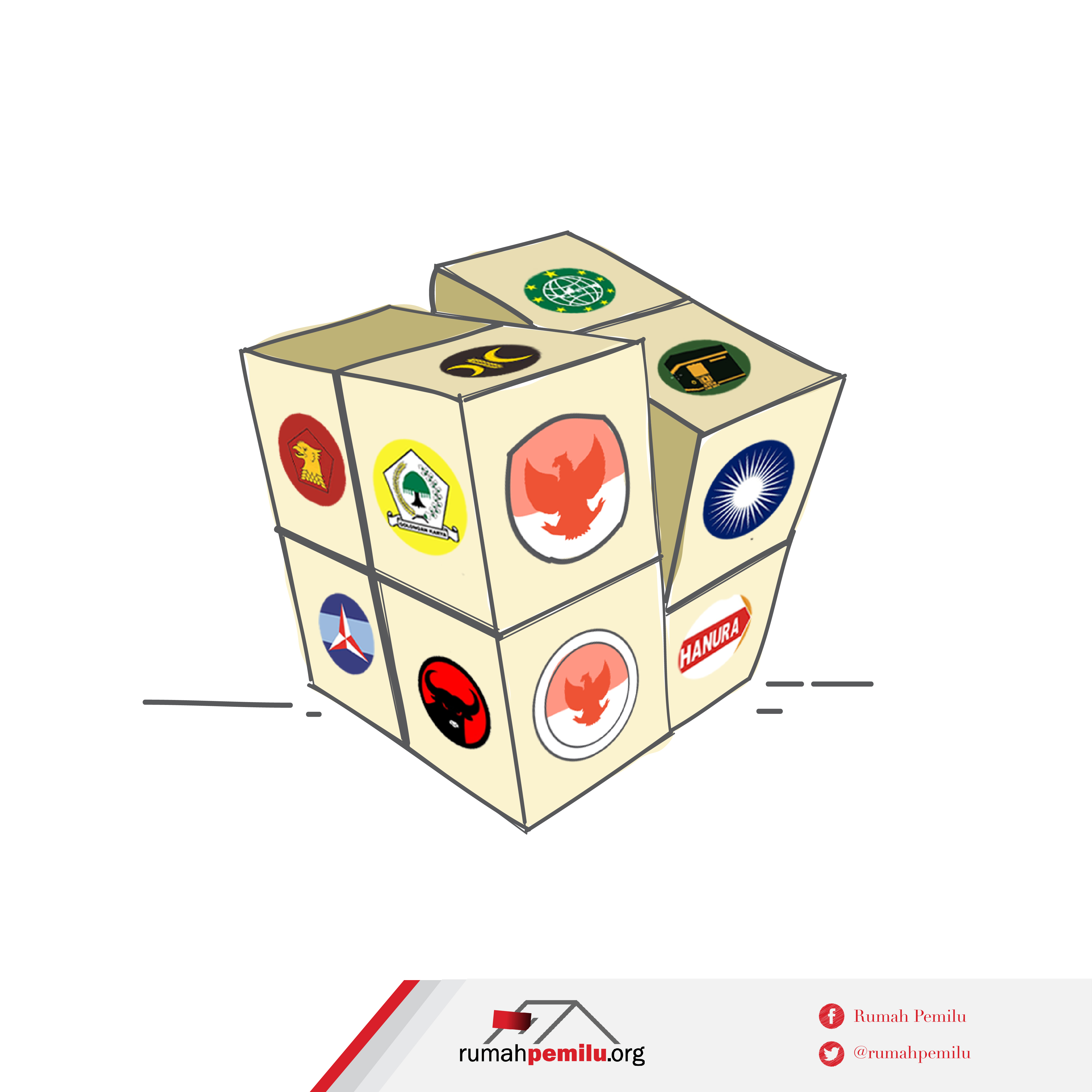After Jakarta*s Governor Basuki Tjahaja Purnama (read: Ahok) chose to run through independent pathways in the elections of Jakarta, 2017, issue of party delegitimation is again served to the public. Existence of political parties to carry their candidates as regional head is ignored.
What questions do occur that make candidates no longer reckon party as the main instrument to support political competition to be regional heads? Is the existence of political parties no longer able to attract prospective regional heads fairly? Party oligarchy that controlled certain elite makes candidates “unwilling” to depend on the political parties, so they choose an independent path as a political vehicle driven by volunteers.
The above questions are needed to be answered and analyzed to find suitable cure of Indonesian democracy that no longer trust the political parties as the regeneration of the nation*s leaders from the lowest to the highest level. In my opinion, the candidates are already disappointed with the existence of political parties that do not accommodate the interests of any potential party cadres. With more family closeness carried forward as party caretaker, qualified candidates individually choose to turn away from the party and to run independently.
In addition, the candidate also read the electoral psychological conditions that no longer trust political parties as part of the public political communication with the government. The problem of corruption and oligarchic family elites are the reason why parties are left by voter basis. Hence, party delegitimation term emerged as a form of protest against the party that does not give hope for the establishment of democracy.
In a sense, party delegitimation is a psychological phenomenon that is reflected in the decline of public confidence in political parties. In the lexicon of political science, party delegitimation can be measured in two dimensions. First, how many voters identify themselves with a party or affective dimension. Second, it can be judged from past evaluation voters against the party intermediary function or rational dimension (Biorcio and Mannheimer, 1995).
Reduced voters who identify themselves with political parties make political parties struggle in deciding definite voter basis. Reflecting on the Old Order, the presence of Masjumi, PDI and Golkar-three parties delegitimated by Suharto- had a clear electoral base of each party; pro-government, nationalist, and religiosity. Unlike reformation era, it proliferates same party ideology with different political parties. Consequently, voters also have difficulty in identifying themselves to be part of the party with the same ideology.
The amount of voters* post-1998 Reformation is not a form of qualified voters who are able to determine the political direction of one party. However, relatively long time of the New Order electoral voters regurgitate the confinement with high political participation. This high political participation do not indicate smart ideological electoral wave- swing voters become popular as voters basis contested compare to ideology.
These reasons bring about thriving independent candidates to run as district/city/provincial heads. Furthermore, massive presences of independent candidates are good for the establishment of democracy in Indonesia. Party deligitimation term by reducing the number of parties imitates several countries with a bipartisan system. The issue of independent candidates controlled by unstructured volunteers will be better if we use bipartisan system.
Virtues that we clearly analyze about independent candidates supported by volunteers are pure democracy without any intervention. I disagree with that thesis to educate future voters. Clearly, a thesis that explains party oligarchy and corruption that make us “unwilling” to choose a party is a form of destruction of structured organization.
The issue of political party oligarchy and corruption as well as independent candidates as a solution makes us doubtful about healthy democracy. This means that regional head supported by volunteers not a political party becomes a problem when the regional head candidates win. If the candidates who participated the elections through independent pathways make a mistake then to whom should we ask his responsibility? Will we curse the volunteers that exist only during elections, after which they dissolve and become ordinary people? This is a note that the antiparty independent candidate fails to understand as an excuse for “unwilling” to participate in any political party.
In addition to whom the leadership responsibility is imposed to the nominating institution, state capture is a reason why we doubt independent candidate. It means that by refusing the help of political parties, independent candidates will establish cooperation with businessmen (read: employers) for capital to win the regional head election.
Intimate relationships between the ruler and the businessmen are certainly more frightening than the political parties who have problems with the oligarchs and corruption. Clearly, the opportunity we punished them at election time is evident that there is an institution responsible for the mistakes made by the leader during the ruling party. State-Capture becomes a business administrative relationship, business interests of the ruler-entrepreneurs who are difficult to detect. So, complicated issue of independent candidates and party delegitimation need us to sit together to think about this issue clearly.
ARIFKI
 Rumah Pemilu Indonesia Election Portal
Rumah Pemilu Indonesia Election Portal




